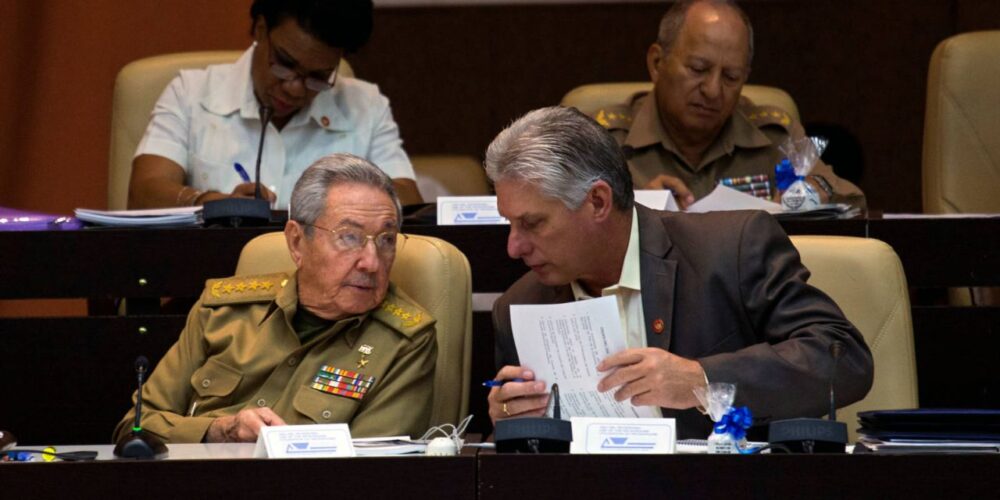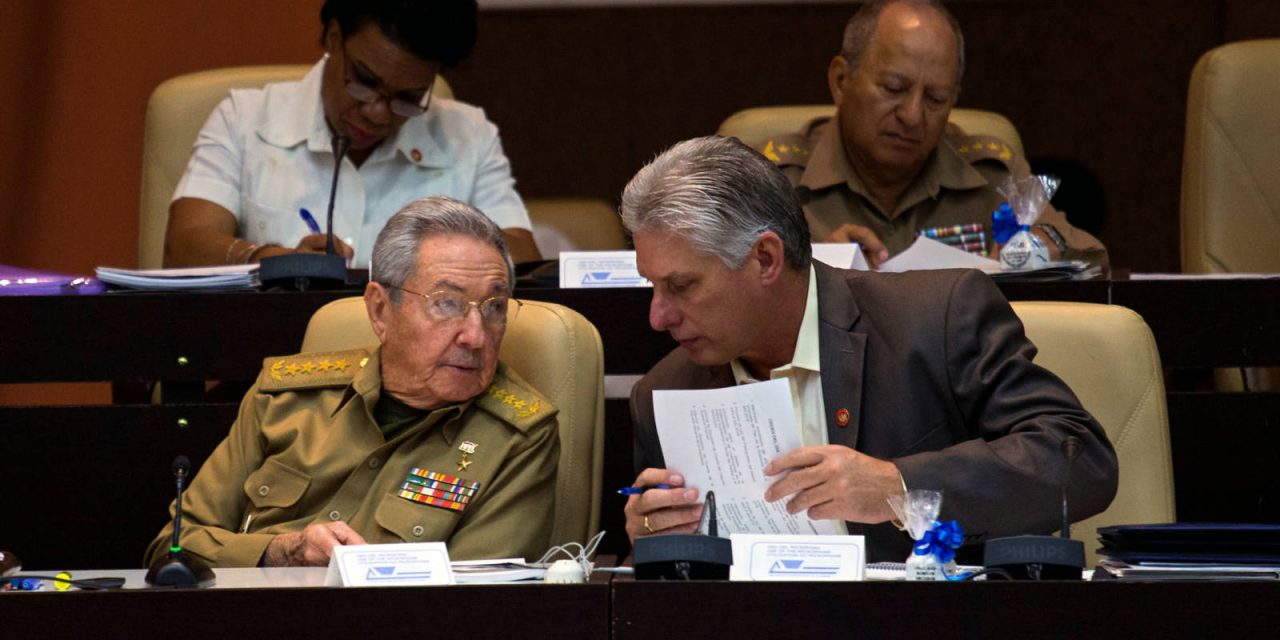
PEJOURNAL – Speaking in an interview, head of the research of the House of Latin America, said that the recent political developments in Cuba would have a decisive impact on strengthening the roots of the revolution and its dynamism and the most striking reflection and updated form of the political upheaval in Cuba following the eighth congress of the Communist Party was the end of Raul Castro’s tenure in power and the election of Diaz-Canel, the 61-year-old president of that country, as the first Secretary of the Communist Party.
He evaluated the move as a turning point in the process of transferring power to a new generation and while referring to the important and comprehensive position of the Cuban Communist Party which stems from its deep ties with the masses and its central role in governing the country’s macro affairs, added: The current president of Cuba is now a person who was four months old at the time of the victory of the revolution, and the current prime minister was born four years later.
He continued: It is not that those changes occurred accidentally and by chance, but on the contrary, they were prepared long ago and years before Fidel Castro’s illness.
The expert on Latin America affairs added: During the past few years when Fidel was in power, he spent most of his time with a team of young people and worked closely with them in the administration of affairs. This process continued with Raul coming to power; as they decided a few years ago that no one can run for more than two terms in office in the Communist Party, and those over 60 cannot enter the party’s Central Committee.
Slow transfer of power in Cuba
Saying that people participated in that process and were aware of it, he further commented: What happened in Cuba was the smooth transfer of power in a way that could be a valuable experience for other countries, because this transfer was not accompanied by power struggles, disputes and factional fights, and it took place calmly and completely consciously and in a planned way.
Noting that transfer of power does not mean that the previous generation will sit aside as a mere observer, he said: The second secretary of the Communist Party is from Fidel Castro’s generation, and several others of this age still holding senior positions. At the core of the Communist Party’s leadership decision-making, eight of the 17 are from that generation, that is to say, they are present in the leadership team for a defined period of time to pass on their experiences to the younger generation, but power not formally and artificially but in practice and on the field will be delegated to this generation.
New changes under three themes of “unity, resistance, continuity”
The analyst of Latin America affairs, referring to the analysis published in the influential Western media about continuation of the political situation in Cuba or major changes in that country continued: In their point of view, change with continuity are necessarily opposed to each other, while basically the Communist Party’s slogan and the changes that are taking place are considered under the three words of “unity, resistance, continuity”.
Stressing that “Maintaining continuity” was the main theme of the same congress raised in the remarks of the Cuban leaders, which refers to the preservation of the principles of the revolution, the principles which encompasses national sovereignty, building socialism based on the protection of the interests of the nation, and preserving the achievements of the revolution in the field of health and treatment, education and continued control of the government in the strategic economic areas and on basic production equipment.
Recalling that those who are now in power are the students of Fidel and Raul Castro who were raised by the previous generation, he said: It is a misconception that the force that will come to power intends to change the fabric of Cuban power, sovereignty and society.
He added that in the domestic arena, increasing the level of production and opening the hands of the private sector to the economic battle in which they find themselves involved is still emphasized, noting: Achievements of those developments in the economic field were examined in the Eighth Congress and Castro stressed that hasty and unplanned actions should be avoided, but that the principle of economic change should not be retreated. He attributed the shortcomings and problems in this area more than anything else to lack of necessary planning and oversight, and blamed the leadership directly on the leadership, headed by himself.
The expert on Latin America affairs further commented that in the Cuban perspective, we will have continuation of the policy of the revolution, and continued: The Communist Party seeks national measure to bring about this process of change with the broad participation of the people and their inviolable unity, because in order to maintain and continue the revolution, such participation is definitely needed.
Stability of foreign policy in Cuba
Regarding Cuba’s foreign policy outlook, despite changes in the country’s political structure, he said: Incidentally, most part of Raul Castro’s speech at the Congress was in this area. Reviewing the history of the US relations with Cuba, he stressed that this relationship has always been influenced from the very beginning by the US attitude towards possession, occupation, and domination over Cuba, and after the victory of the revolution, that policy can be used in such a phrase as “overthrow the government arising from the will of the nation”.
He added: They have noted that this policy of overthrow and destabilization, despite the developments that are taking place in the White House with the presence of different presidents, has been continued and at the same time, they have emphasized that by maintaining mutual respect and the rights of the Cuban people and not falling short of the principles of the revolution, they will try to continue negotiations with the United States and take national interests into account.
The expert on Latin America affairs said: The new generation of rulers in Cuba also believe that the United States, instead of taking action, should accept that this revolution has taken shape and continued despite opposition from the United States. In this regard, they are trying to establish better relations with the new US administration by emphasizing their national interests, and they have stated that they will not fall short of the principles and achievements of the revolution.
The head of the research of the House of Latin America stated in conclusion that Cuba’s internationalist policies in support of liberation movements and struggles of the oppressed nations against the US, such as Iran, will continue and no change is expected in this regard. In fact, we will see the continuation of Cuba’s foreign policy.
